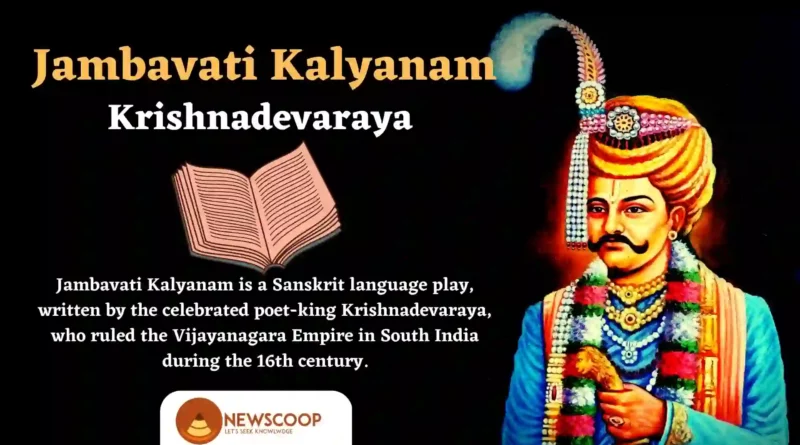Jambavati Kalyanam: Sanskrit Book Written by Krishnadevaraya
What is Jambavati Kalyanam?
Jambavati Kalyanam is a Sanskrit language play, written by the celebrated poet-king Krishnadevaraya, who ruled the Vijayanagara Empire in South India during the 16th century. The play is considered an important work of Sanskrit drama and is widely regarded as one of the finest works of its kind written by Krishnadevaraya.
Jambavati Kalyanam is known for its intricate plot, lively characters, and sparkling dialogue, which have made it one of the most popular works of Sanskrit literature.
Story of Jambavati Kalyanam
Jambavati Kalyanam tells the story of Jambavati, the daughter of the king of the bears, who is betrothed to Lord Krishna, the Hindu god. The play explores the relationship between Jambavati and Krishna, and the trials and tribulations they face as they try to overcome the obstacles that stand in their way. The play also touches upon themes of love, devotion, and duty, and is considered a classic of Sanskrit literature.
Characters
Jambavati Kalyanam features a rich cast of characters, including Lord Krishna, Jambavati, the king of the bears, and a host of other characters who play important roles in the story. The characters are well-developed and are depicted as complex and multi-dimensional, adding depth and nuance to the story.
Krishnadevaraya’s Contribution
Krishnadevaraya was known for his love of literature and his patronage of the arts. He is widely regarded as one of the greatest poets and playwrights of his time, and his works are considered some of the finest examples of Sanskrit literature.
Jambavati Kalyanam is just one of the many works he wrote, and it remains one of his most celebrated and beloved works to this day.
Conclusion
Jambavati Kalyanam is a timeless work of Sanskrit drama that continues to captivate audiences with its intricate plot, lively characters, and sparkling dialogue.
Written by the celebrated poet-king Krishnadevaraya, the play remains one of the most popular works of Sanskrit literature, and its legacy continues to be celebrated to this day.
Thank You!

